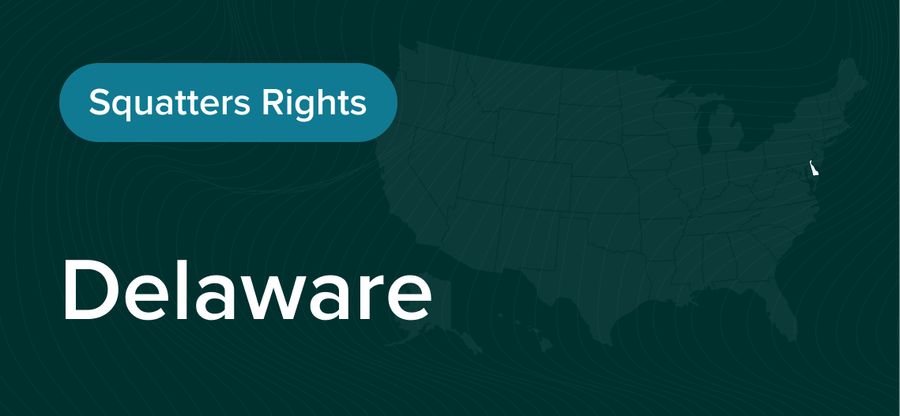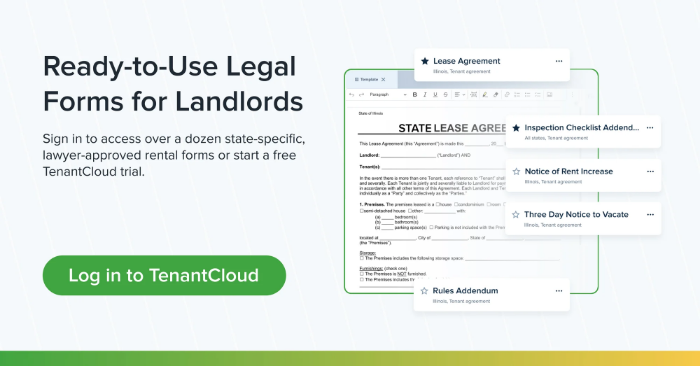Squatter's rights may sound like an intense subject, but they are an important and often misunderstood aspect of property law. Whether you're a property owner concerned about unauthorized occupants or someone interested in the complexities of adverse possession, understanding squatters' rights is essential. Like every state, Delaware has its own specific set of rules and regulations governing these laws, many of which can be surprisingly complex.

From legal nuances to detailed restrictions, navigating squatters' rights in Delaware requires a thorough understanding of the system. This article explores the key aspects of Delaware's squatters' rights laws, outlining the rules, examining the limitations, and offering practical steps property owners can take to address or prevent squatting situations. Read on to gain a clearer understanding of this unique area of property law.
What Are the Regulations for Squatters' Rights in Delaware?
Understanding a squatter's rights in Delaware requires examining the specific regulations that govern these situations. These laws, which form part of adverse possession statutes, outline the circumstances under which an individual may claim ownership of a property they have been occupying without permission.
By exploring these regulations, property owners and occupants alike can gain clarity on their rights and responsibilities, as well as the legal steps involved in addressing potential disputes.
Understanding Squatters' Rights
Squatter's rights, a colloquial term referring to legal entitlements rooted in adverse possession, allow individuals to claim ownership of a property after occupying it without permission for a specified period. These laws exist to promote the productive use of abandoned or neglected land.
Under Delaware law, adverse possession requires continuous possession of a property for at least 20 years. The squatter must maintain exclusive, actual, open, and notorious possession during this time to make a valid claim. This means the squatter treats the property as their own without hiding their occupation from the actual property owner or the public.
Continuous and Exclusive Possession
A key component of Delaware's adverse possession laws is continuous and exclusive possession. This means the squatter must use the property without interruption and without sharing possession with others, including the legal property owner. For instance, if the property owner retakes possession or grants the squatter permission to stay, the continuous possession requirement resets.
Related: Delaware Evictions | Laws and Protections
State Laws and Legal Ownership
Squatter rights in Delaware align with broader state laws governing property rights and real estate ownership. To pursue adverse possession, a squatter must demonstrate a clear commitment to taking control of the land, which can sometimes include paying property taxes or making improvements to the property.
These regulations can significantly impact property management practices. Property owners should remain vigilant about their real estate investments to avoid unintentional adverse possession claims.
Learn more about building an effective real estate portfolio.
What Are the Restrictions on Squatters' Rights in Delaware?
Now that we've established the legal basis for adverse possession in Delaware, let's take a closer look at what specific restrictions may apply to a squatter's rights in the state.
Limitations of Adverse Possession Claims
While adverse possession provides a legal framework for squatters' rights, it is not an easy process. Delaware law imposes strict requirements to ensure that only serious and long-term occupants can potentially claim ownership. These restrictions protect property owners by preventing unscrupulous individuals from exploiting the law.
For example, to assert an adverse possession claim, the squatter must provide evidence of their uninterrupted occupation for a full 20 years. This period cannot include time spent leasing the property or any instance where the legal owner permits the squatter to remain.
Property Management and Legal Safeguards
Property owners in Delaware can take proactive steps to guard against adverse possession. Regularly inspecting properties, even those that appear vacant, helps identify potential squatters early. Additionally, keeping property taxes up-to-date and ensuring compliance with Delaware landlord-tenant laws can solidify the legal ownership of the property.
Preventing Unauthorized Occupation
Another layer of restriction is that squatters cannot claim rights to properties actively utilized by the owner or other authorized tenants. These measures aim to balance squatters' rights against the legitimate interests of legal property owners, ensuring fair treatment for all parties involved.
Related: Understanding New Jersey Eviction Laws | Rights, Procedures, and Notices
What Legal Steps Must a Property Owner Take to Evict a Squatter in Delaware?
If you are a property owner in Delaware and suspect that someone has unlawfully occupied your property, you need to take immediate action to protect your rights. Here are the steps you can take to evict a squatter from your property:
Understanding Eviction Laws in Delaware
If a property owner discovers a squatter occupying their land, immediate action should be taken to prevent further complications. Delaware law outlines specific steps property owners must follow to reclaim possession of their property. Understanding these eviction laws can significantly streamline the process.
Filing a Summary Possession Action
The first legal step in evicting a squatter involves filing a summary possession action with the court. This legal process allows property owners to request a hearing before Delaware's Justice of the Peace Court, often referred to as a peace court. During the hearing, the property owner must prove their legal right to the property while providing evidence against the squatter's claim.
Once the court rules in favor of the property owner, it may issue a writ of possession, instructing law enforcement to remove the squatter from the premises.
Working with Law Enforcement
Following the court's decision, property owners can partner with law enforcement to enforce the eviction order. Delaware law prohibits property owners from attempting to evict squatters independently through force or intimidation, as these actions can lead to legal repercussions.
If the squatter contests the eviction or files an adverse possession claim, legal proceedings may extend. It is strongly recommended that you seek legal advice from an experienced attorney familiar with real estate law in Delaware.
Ensure Proper Documentation
To strengthen their case and protect their rights, property owners should maintain thorough and detailed documentation of their property's condition and use over time. This documentation can serve as critical evidence in legal disputes or issues involving squatters. Examples of valuable records include property tax records that demonstrate ownership, lease agreements that outline tenant responsibilities and usage rights, and written communications with potential squatters or other parties involved.
Additionally, regularly updated photos of the property can provide visual proof of its condition, helping to establish whether any damage or unauthorized use has occurred.
Still guessing on how to manage a rental property? Check out this helpful guide.
Related: Pennsylvania Eviction Laws Explained | Navigating the Legal Landscape
3 Key Considerations for Both Property Owners and Squatters
Adverse Possession and Property Law
Adverse possession laws in Delaware play a significant role in resolving disputes over property ownership. However, claiming adverse possession is a complex process that leads many squatters to opt for rental agreements or legal settlements instead.
Landlord-Tenant Laws and Real Estate Practices
Property owners should familiarize themselves with Delaware's landlord-tenant laws. These laws govern lease agreements, tenant rights, and eviction protocols, providing a robust framework for resolving property disputes. By adhering to these guidelines, property owners can avoid legal battles and ensure compliance with state regulations.
Preventive Measures for Property Owners
To avoid squatter-related challenges, real estate investors should monitor their properties and address issues before they escalate. This includes regular property maintenance, cybersecurity measures to prevent fraudulent ownership claims, and consulting with professionals about Delaware real estate law.
Explore ways to become a successful real estate investor.
TenantCloud: The Solution For Property Owners
TenantCloud is a comprehensive property management platform designed to simplify the rental property management process for landlords, property owners, and real estate investors. It offers a range of tools, including rental applications, online rent collection, maintenance tracking, and tenant communication, all in one intuitive platform.
When it comes to preventing and addressing squatter-related issues, TenantCloud can prove invaluable. By enabling property owners to easily screen potential tenants through background checks and secure online applications, it minimizes the risk of unauthorized occupants.
Additionally, TenantCloud's strong maintenance tracking and property monitoring features allow landlords to stay connected with their properties, ensuring issues like squatting are identified and resolved quickly. With its user-friendly interface and efficient tools, TenantCloud helps property owners manage their real estate assets while reducing the likelihood of squatter-related complications.
Conclusion: Delaware Squatters' Rights Law
Navigating Delaware's squatters' rights law requires a clear understanding of adverse possession regulations and the legal processes for eviction. For property owners, staying proactive is key to safeguarding ownership and avoiding expensive legal disputes. Squatters, on the other hand, must meet stringent legal criteria to pursue an adverse possession claim successfully.
Whether you're a property owner, tenant, or potential squatter, knowing your rights under Delaware law ensures fair treatment and clear resolutions to property-related conflicts.
___________________________________________________________________________
Disclaimer: TenantCloud does not provide legal advice. This content is for informational purposes only and should not be considered legal guidance. Users are responsible for reviewing all applicable local, state, and federal laws and consulting a qualified attorney with any legal questions.
___________________________________________________________________________





